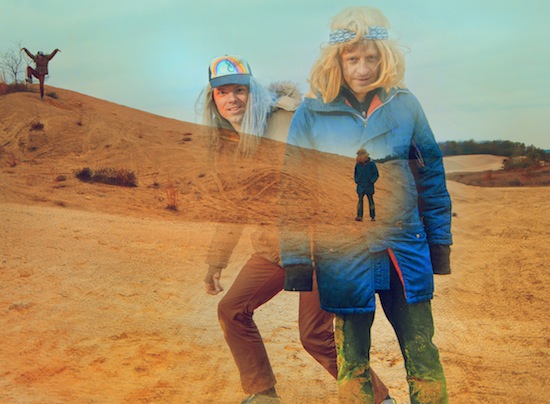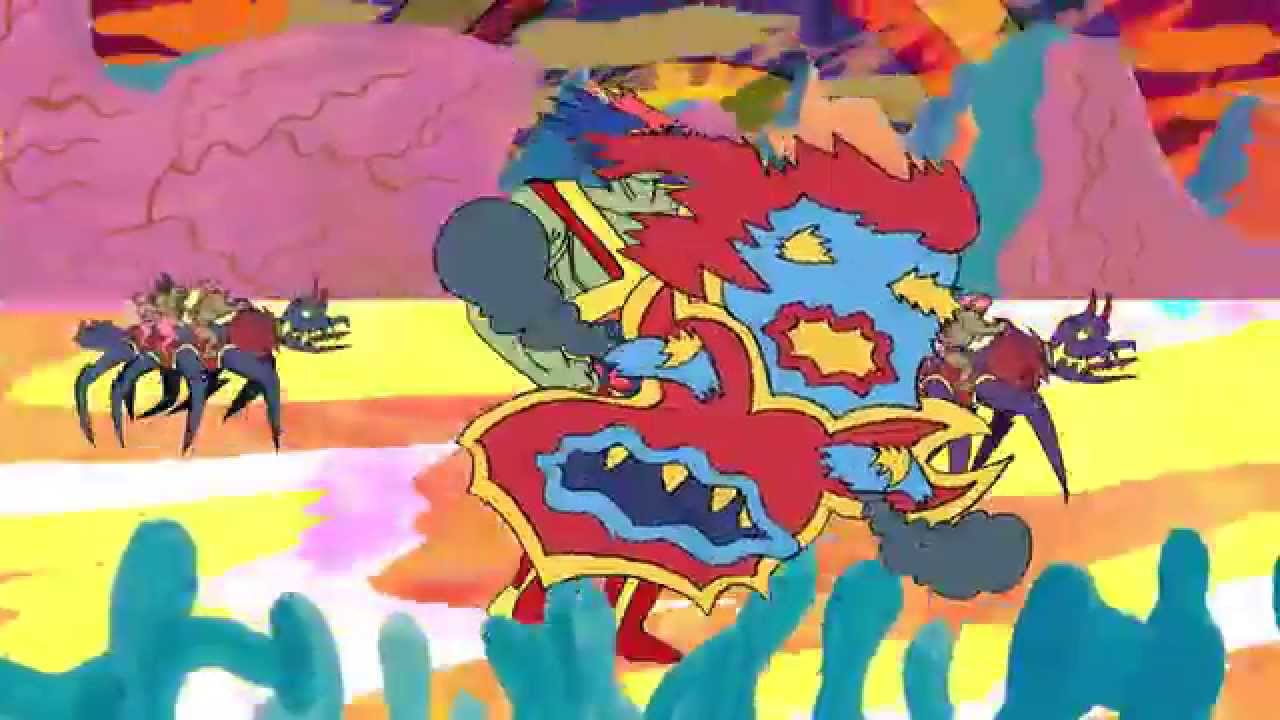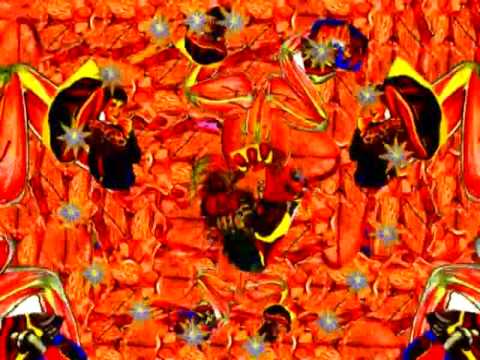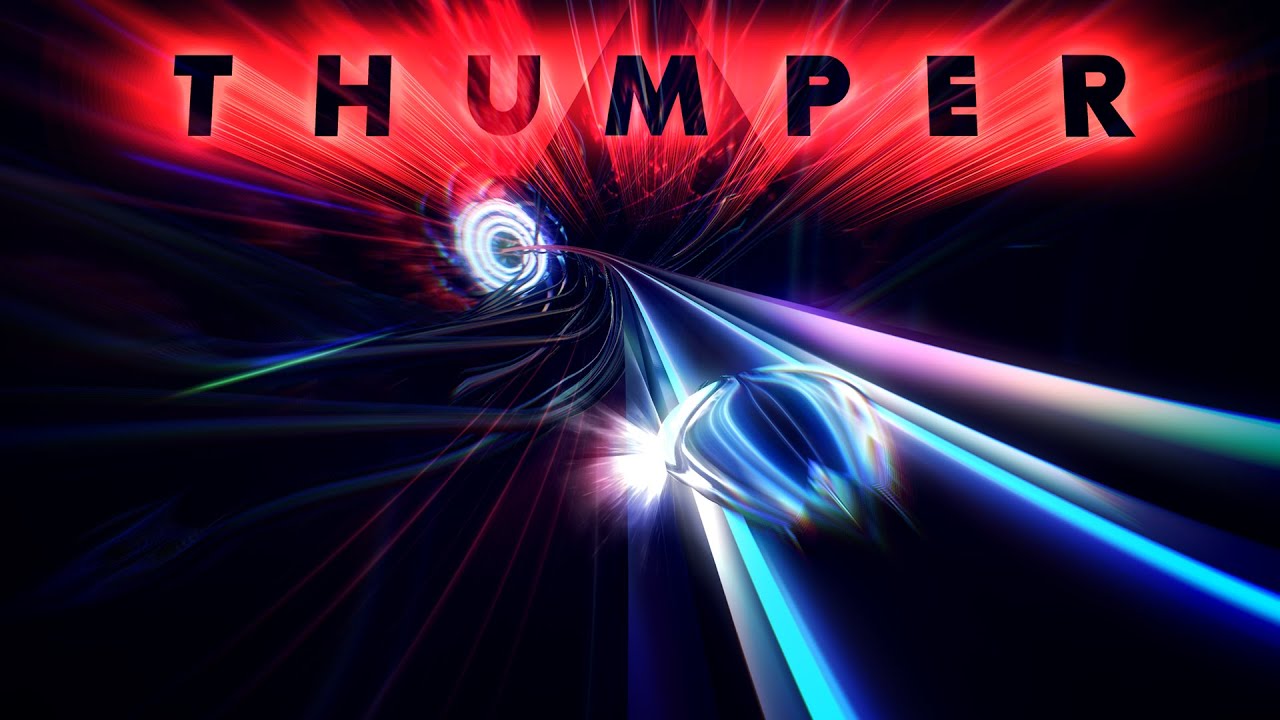Portrait by Natalja Kent
It’s pretty rare for both of the Brians to give an interview together. How come I’m getting the pleasure of meeting both halves of Lightning Bolt? “Because,” says Chippendale wryly, “we didn’t articulate to [Thrill Jockey Europe’s PR] Ken that we don’t do interviews together.”
He goes on to explain that it’s actually usually because interviews happen over the phone rather than in a Camden pub. But I reckon there’s another reason – they don’t bounce off each other like you would assume men who’ve spent much of the past twenty years together would. Soundbites come easy to drummer Chippendale, less so to guitarist Gibson, and they both like to check each other when it comes to exaggeration (BC) or cynicism (BG). Their opinions and perceptions of their relationship with the wider industry seem to differ hugely.
It means that sometimes our chat feels disjointed – much like the stop-start journey the pair took to releasing Fantasy Empire in March. The headline was that they went hi-fi for the release, jettisoning their former recording set-up and engineer. The period was also characterised by more independent work on their solo projects, both musical and visual.
Due to this general unrest, our conversation veers towards the negative aspects of their experience. “If you think something’s missing you could keep working on it,” says Chippendale. “But we were also just like: let’s be done with this five-year suit of armour that we’ve carried on our backs.”
And that’s why I forget to ask them if they are as stoked on Fantasy Empire as I am. That’s the unfortunate thing about familiarity – when you’ve been playing together and making records for as long as Lightning Bolt have, the words written about you tend to focus less on the fact that you’re still making challenging, blood-curdling and perfectly terrifying records, and more on the fact that you’ve been around so long, or that you’ve had a slightly different experience than last time you made an album. So my apologies for that. Thankfully, they’re pretty interesting guys, whatever you ask them about.
I feel like you guys inspire a uniquely cultish fandom in many of my friends. Do you feel that obsessiveness?
Brian Gibson: I’ve never noticed that.
Are you serious?
BG: I mean, I don’t believe it.
Brian Chippendale: Well we’ll play a show and we’ll obviously see people that are really excited to see us, but yeah, in our mind when we walk away that shuts off. It’s not like they go home and draw pictures of our faces.
I mean more like people perhaps knowing what gear you’re using better than you know yourself?
BG: Yeah I get that sometimes. People are more interested in certain elements of my gear than I am. A lot of my stuff has just evolved through trial and error. But some people see the way things are as a canon I’ve established, whereas it’s actually just this process that I’ve been involved in that’s arbitrarily where it is right now.
BC: I worry sometimes about the way I interact with people. I do talk to kids after the show. And I try to talk to everyone totally normally, but I do worry it has changed the way I socialise with my friends. When you play in a band and people like it and people come up to you and know who you are and they know where you’re from and they know everything, all kinds of things about you, it does affect you on some level. You start wondering who else knows who you are… are you talking to people like they know who you are? Or talking to people like they have some sort of shared experience with you when they don’t? You have to just sort of keep that in mind.
What do experiences like working with The Flaming Lips or Björk do to your self-perception?
BC: For him? Nothing.
BG: Yeah, I mean I don’t like talking about this stuff too much. It makes me uncomfortable. If I were really super into The Flaming Lips… I know it’s terrible to say but I don’t, well… we kind of fell into that because they really wanted to do it.
BC: Yeah, Wayne was really psyched about that idea. [Brian and I] have a different perspective on this stuff. I like meeting artists that have navigated the artistic world even if I’m not in love with everything they’ve done. I just find it interesting to see people that have gone through that world and retained and maintained control.
BG: I wasn’t too into the stuff we did as a collaboration. They added these lyrics that I didn’t really like. I just didn’t feel like I was a participant. We recorded some stuff, they remixed it and added some lyrics. I didn’t feel inspired. I just feel like Wayne was super aggressive. I felt like I was put in a weird position where I had to go along with it.
Let’s talk about a different musician then – Dan Deacon did a Baker’s Dozen for tQ in June and he said some really nice stuff about Ride The Skies.
BC: Good old Dan. I actually read that.
How does it feel to be cited in that way?
BC: I feel like I hear it a lot. It’s weird how long we’ve been around. My wife and I went and visited an artist in Brooklyn that we discovered on Instagram who makes woven forms… and it turns out he was at our show in blah blah blah. Everyone was at our show in blah blah blah. We’ve been around for a long time so we’ve affected people and passed through people’s lives. I mean Dan’s awesome and he’s specifically a very smart and caring and kind musical performer and it’s cool to think that we influenced him.

Live shot by Wannes Cré
You played with four other acts last night [GZA, Tortoise, Loop and Mugstar at London’s Roundhouse]. I thought it would be a really static show due to the fact it was this extended gig with lots of different kinds of fans. But it got pretty rowdy anyway. Have you encountered a show yet where people don’t move?
BG: Germany. That’s the only place I can think of where we’ve had some shows where it’s been notable how stoic the audience is.
BC: There’s always some towns on some nights that people just don’t move. You just think they’re getting it on some other level; that it’s more cerebral for them. People connect in different ways.
BG: I get it. I never freak out at shows. It’s always really rewarding when people are freaking out but I know that it doesn’t tap into my motor system at all. I just don’t respond to music that way unless I really force myself too.
Is there anything you’ve noticed about changing audiences over the years?
BC: It’s more like unchanging. They stay the same age as we get older.
How do you feel about that?
BC: Well it’s cool to think you’re connecting with young people because when I was young that’s when I connected to a lot of music.
BG: There was a point though where our shows got hijacked by the most intense 17 and 18 year old dudes in the front row. And it pushed out a lot of the more mellow observers who just wanted to see it and not get knocked in the face.
BC: You wanna play for young people because young people are where the energy is, but you also don’t wanna feel: “What’s wrong with me? Am I not growing up at all?” But I think they’re just hiding at the back. The back is just lined with old men with canes.
How did it feel to take a bit of a breath between this new record and the last, and to work on other stuff?
BG: We maybe didn’t take as much of a breath as it might have seemed.
BC: What took five years was realising that the process wasn’t working and then divorcing ourselves from our engineer – who had engineered everything since like 2000 with us – and then working with a new studio, Machines With Magnets, with these two friends of ours. But there was definitely times over the last five years where we were like, “We’re not going to make a record, it’s just not working,” despite the fact that we’d still have fun playing and we’d still be writing songs. We’d be unhappy with recordings and instead of trying to work it out we’d be like: “I’m gonna work on my video game today,” or “I’ll play solo today. I’ll see you later”. It became easier to do the other stuff.
How did it feel to hear back the new record then? Was it like a weird mirror to hear yourself sounding different after a long time sounding one way?
BG: I was pretty paranoid when we finished that maybe we’d sapped the soul out of it with all the high fidelity stuff. We also did things in combination with that that I was unsure about… the slower tempos; more overdubs of bass. I was like, “Eugh, are we producing this too much? Is it too palatable?” But when I hear it next to the older records I just think it objectively sounds better – it sounds like a more accurate translation of what we do.
Accurate to what you hear live?
BG: It’s what I hear when we’re playing. This one is drier and straighter. From where I’m standing when we play, the speaker is right there so it’s all super dry and big to me.
You’ve always cited Krautrock as an influence, and I feel like I hear that more now.
BC: We both listen to that kind of stuff. And even on Hypermagic Mountain there was like a Hawkwind sort of shout out. It might be the way the recording is – in Krautrock you hear the very distinct separation of the drums and the guitars. The guitars float over it a lot in Krautrock or something…
BG: I think on this record we were more spare with a lot of things.
BC: My one big fear about this album was that it doesn’t go off a cliff. All of our other records at some point literally drive off the road and then they’re tumbling down a mountainside. This one pretty much stays on track. But yeah, I think Krautrock has been there for a while. I think if Brian and I controlled what we do more, then you’d hear that more because we’re really into that kind of stuff. But we’re actually just not in control of our own band enough to get that out there as much as we’d like.
A lot of people have talked about the more metal sound on Fantasy Empire.
BC: I mean I think if you play aggressive, fast and somewhat distorted; people are gonna say it’s like metal. I think because this was produced in a more standard way, people are like “Oh wow, the guitar sounds like a guitar”, versus the more ‘wall of sonic-ness’ that it used to be. So now when [Brian] does some high lick on the guitar, it sounds like a lead guitar. It’s also because the first song we released was called ‘The Metal East’. And I think people also think it’s metal because we have finally succeeded in sucking any kind of sense of humour out of all of our music.
Is that why it’s not multi-coloured? It’s the first monotone cover art, right?
BC: There’s colour on the inside, but yeah, it was a little about that. I was trying to make a creepier looking record. I generally make the covers mimic what I’m making as a visual artist, and the style I’m working in at the moment when that record comes out. But I did a couple of Black Pus covers and I hadn’t arrived at a new visual identity that was different enough from the last record. So I had to go to some new place to try and find something different. And that’s where it ended up.
Do you guys talk about what it’s going to look like?
BG: He’ll do some concepts and I kind of have veto power. We’ll discuss it but I’m usually fine with what he’s doing. I mean, it’s like his work represents the visual component of our album.
BC: He’d probably make a cooler record cover though.
BG: I don’t know about that.
BC: Looking at his videogame [Thumper] that’s coming out – any frame from it could be a sick, sick cover.
BG: I don’t think that’d work for us though.
BC: It would be a little weird, like it was a techno record or something.
BG: Our records need to have something hand-done. Everything is so physical and ramshackle and the drums aren’t put together very well and my amps are kinda shitty. Maybe like a certain kind of shitty photograph might be okay, but definitely not CGI images.
As an artist, can you [BC] tell me about what’s exciting you in comics right now?
BC: I read a lot of mainstream stuff.
Are you reading DC’s Convergence?
BC: Okay, I can barely deal with DC at this point. There’s certain titles I get but I’m not reading Convergence. But you know what’s really good? Lazarus by Greg Rucka. I think it’s awesome. I like the Ed Brubaker Criminal stuff too, and a bunch of other stuff that I can’t remember.
Could you [BG] tell me about any influences for the videogame you’ve been working on that’s due out next year? Any materials you drew on?
BG: I thought about 2001: A Space Odyssey and a Stanley Kubrick sort of aesthetic a lot. And that kind of psychedelic where it’s about really simple, pure geometric forms. That’s definitely something I’m trying to put into the game because so many games that purport to be psychedelic are just about having the busiest visual stuff going on, with colours flying everywhere. I feel like when things get really heavy and dark, it’s better to keep things really simple. It taps into some kind of core nightmare for me, that really simple geometry.
BC: Like how Interstellar depicted space. The good parts about that movie were those little ships in that huge world… isolation is crazy.
BG: I know what you mean. I feel like the scariest technology is beyond our comprehension and we can’t quite understand where it is from and how it got made. That technology is simple because if you have too much detail, things are then being built for some purpose. But if it’s really simple and you just don’t really understand why it’s there or what the purpose is…





